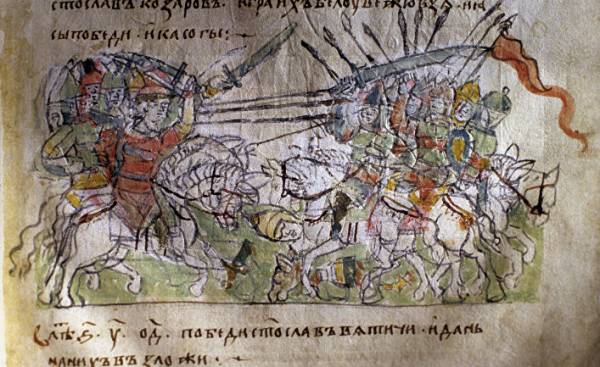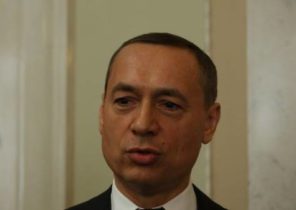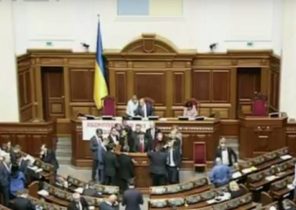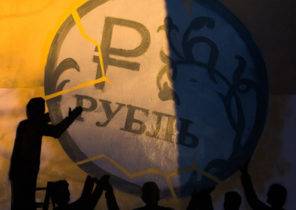
I must say that unfortunately, years of mockery of history as not less than many years of uprooting from the depths of our people any kind of nobility, that is intellectuals, led to the fact that the masses have completely lost the ability to think critically. Completely politicized, ideologically well-built mythology of the Third Rome, served to us under the guise of the history of Russia, which, according to the Moscow ideologists, somehow mutated to Russia, perceived as the only true and correct.
But is it really? Is it possible to take at face value the history of the state, which corresponds with an enviable regularity? Can you believe those words of truth have not spoken out of my mouth in the first place? Who is not able even before the terrible fear of death and the words of truth to speak?
Methodology
History can be studied, may be interpreted in two ways:
Subjective: Guided by the facts, the sequence of which or the validity is questionable.
Objective: Investigating its in the style of a detective. Trying to determine the truth based on the fact that, guided by knowledge about the present, we know exactly who the perpetrator of the events, who provoked who the best was a particular turn.
I see the point in trying to understand the story as fairly as possible. Interpret the meaning of events and facts closest to the truth. Not based on their own preferences and paying tribute to the works of researchers who have addressed this issue previously.
In history, as in life, you may notice a surprising pattern: if the road is narrowing, the two moving towards the car regardless of speed, from the point of origin and point of arrival, time spent in transit, and all other introductory necessarily occur in exactly this narrowest point of the road. Paradoxically, it is almost an axiom.
What happens on the road with a narrowing in the story, there is with dates.
The Russian Federation, also — Russia, and, frankly, Moscow, Russia and her colonies, according to Wikipedia, begins his chronology as a state with 862. At the same time (that is) why to this date the Kremlin has decided to tie its appearance there justifies in the following way: the date is chosen according to the chronicle, because this year the people of Novgorod called for the Vikings to rule Russia.
To this day, allegedly about any state, of Russia and of the question. Such people do not exist!
This, of course, the most natural false as of dubious historical value of the Story, which in fact is a kind of a compilation of different Chronicles.
The outstanding Russian philologist and researcher of the history of Alexey A. Shakhmatov in his study of the “Legend of the vocation of the Vikings” wrote that “Legend of the vocation of the Vikings” contained in the “tale of bygone years” in her previous Chronicles of the end of the XI century, is a late insertion, made by the chroniclers of the several Northern traditions, they subjected to deep processing.
That is the most significant and important according to Russian propagandists mention of the beginning of Russia — the most natural lie. As the lies that Novgorod was the cradle of Russia.
Novgorod certainly had an important cultural significance and without any additions and deceptions of his place in history is extremely important. That’s just the beginning of Russia it is irrelevant. And certainly he was never the capital of Russia!
The history of Novgorod is conceived in Moscow for the displacement of the center of the coordinate system point of the Assembly for the opportunity to prove that the center of Russia in General may move, travel. Otherwise, how else could justify the mythical fact that allegedly after the capture of Kiev in 1240 by Mongol capital of Russia was moved to Moscow.
Novgorod was typical for the time city-state, and never associated his story with the history of Russia — Kiev. It is a myth, invented in Moscow to justify its aggression against Novgorod and nothing more.
This confirms the fact that Novgorod was never called themselves Rus, for knew that this toponym relates solely to Kiev, glory of which they did not seek, unlike Moscow.
In fact, Russia began to call Novgorod during the reign of Ivan III, and finally adopted the name after Ivan the terrible defeated and “reunited” with Moscow, this free city.
But back to Rus Rus the original.
The first mention
The first written mention of Rus ‘ refers to the year 839, and has no precise geographical reference, but creates all the grounds to assert that the center of it was where South of Novgorod.
In Berlinskoj Chronicles written by the Bishop of Troyes by Prudential, first mentioned the arrival of the ambassadors of the people “Rhos”, led by the Khagan!
“Venerunt laegati Graecorum a Theophilo imperatore directi… ferentes cum donis imperatore dignis epistolam; quos imperator decimo quinto cal. Juni in Ingulenheim honorifice suscepitt… Misit etiam cum eis quosdam qui se, id est gentem suam, Rhos vocari dicebant, quos rex illorum, Chacanus vocabulo ad se amititiae, sicut asserebant, causa direxerat, petens memoratam per epistolam, quatenu benignitate imperatoris atque auxilium redeundi facultatem per totum imperium suum habere possent, per itinera quae quoniam illum venerant ad Constantinopolim, inter barbares et nimiae feritatis immanissimas habuerant gentes, quibus eos, ne forte periculum inciderent, redire voluit. Quorum adventus causam imperator diligentius investigans, comperit eos genti esse Sueonum, exploratores potius regni illius quam nostrisque amititiae petitores ratus, penes se eo usque retinendos judiciavit veraciter quod invenire posset, utrum necne fideliter eo pervenerint; idque per Theophilio memoratos suŏs legatos atque epistolam intimare non distulit, et quod eos illius amore libenter suscepit; ac si fideles invenirentur, facultas et absque illorum periculam in patriam remeandi daretur, cum auxilia remittendos; alias sin, una cum nostris missis ad ejus praesentiam dirigendos, ut, quid de talibus fieri deberet, ipse decernendo efficeret”.
In other words, in may 839 to the court of Emperor Louis the Pious in Ingelheim was the Embassy from the Byzantine Emperor Theophilus. In a special letter had asked Louis to pass through his land ambassadors of the “people ROS”, which in this case is about themselves agreed that they are — from the secular people, but the leader of their Kagan. They were in Constantinople to conclude a peace Treaty, but could not return home the same way, as it captured evil so ferocious barbarians.
Read:
Militarism is an integral part of Russian culture
Interestingly, the Khazar title of “Kagan” is often applied to the rulers of Russia, but never to the rulers of Novgorod, or even more other people.
Thus, the first written mention of Russia as a state refers to the year 839.
Nevertheless, 839 year did not become the point of reference, which may be called the beginning of Russia.
Schletzer, Kunik, Circle, Pogodin believed that Russia “has started at Michael, because we know that when the Rus come to Constantinople”.
Primary Russia
The siege of Constantinople as the beginning of Russia
PVL once again confirms its falsity and political correctness toward the regime with the words: “In the year 6374 (866)went Askold and dir war on Greeks and came to them in the 14th year of the reign of Michael. The king was at this time in the campaign against the Hagarites, have already reached Black river when the eparch sent him the news that Russia is going to Constantinople, and returned a king. The same went inside the Court, set of Christians have killed and have besieged Tsargrad two hundred ships. The king hardly entered the city and prayed all night with the Patriarch Photius at the Church of the Holy virgin in Blachernae, and they carried away with songs divine robe of the Holy virgin, and have moistened in the sea to her floor. Was at this time, the silence and the sea was calm, but then suddenly the storm came up with wind and got back up huge waves, swept the ships of the godless Russian, and nailed them to the shore, and broke, so a few of them managed to avoid this trouble and to go home.”
It is a deliberate lie, as the campaign of princes of Russia have taken place in 860, that is, 6 years earlier.
Why did the chroniclers deliberately put us in Oman? Why the ancient chroniclers threw the first campaign Rusov 6 years?
And here is why: “In the year 6370 (862)drove the Vikings over the sea, and did not give them a tribute, and began themselves to own, and no truth among them, and stood on the kind of race, and was their strife, and began to fight with each other. And I said to myself: “let us Look for a Prince who would be owned by us and judged rightly.” And went overseas to the Varangians, to the Rus. Those Vikings were called Rus, others are called Swedes, and others Normans and angles, and still others gotlanders, so these. Have told to Russ Chud, sloven, Krivich and all: “our Land is great and rich, but there is no order. Come to reign and own us”. And elect three brothers with their birth, and took with them all the Rus and came and sat senior Rurik in Novgorod, and another Sineus — in Beloozero, and the third, Truvor — in Izborsk. And from those Vikings nicknamed the Russian land. The Novgorodians same — the people from the Norman race, and before they were Slavs.
In two years Sineus died, and his brother Truvor. And he took all the power one Rurik and began to distribute to the men of their city — to Polotsk, this growth, another Beloozero. The Varangians in these cities — nahodniki and the indigenous population in the Novgorod Slavs, Polotsk — Krivichi, Rostov — Merya, Beloozero — the whole, in Murom — Murom, and of those all ruled by the Rurik. And he had two men are not his relatives, but the nobles, and they take time off to Constantinople with his race. And they went down the Dnieper, and when sailed by, we saw a small town on the hill. And asked: “Whose is this town?”. Same answer: “there were three brothers” Cue” Schek and Horeb, which built this town and perished and we sit here, their descendants, and to pay tribute to the Khazars”. Askold and dir remained in this city, have gathered a lot of Vikings began to possess the land and meadows. Rurik Prince of Novgorod”.
That is, according to the chronology, which we have PVL:
First, the people of Novgorod were called to reign of the Vikings on Russia (which they were).
Then Askold and dir, who were allegedly vigilantes Rurik, just casually, in passing, became the rulers of a huge fortified city.
And then they made a trip to Constantinople.
But in reality it was not so!
In accordance with the actual timing it turns out that in 860 the Rus under the leadership of the Kievan princes Askold and dir went to Constantinople. Russia is not defeated under Constantinople for the burst of the storm, but on the contrary, as evidenced by Photios himself, and many other Greek and Western European sources, returned home in triumph!
And, most important, all this happened BEFORE the mythical vocation of the Vikings to rule in Russia that Novgorod!
It turns out that neither Askold and dir not were no boyars of Rurik (boyar — Bulgarian title)!
It turns out that Kiev has called Rus before calling the Vikings!
Another interesting point:
Why, if, as the authors PVL, Russia at Constantinople was defeated, Michael III has signed with Russia the “Treaty of peace and love”, under which he was to pay homage to? This is completely contrary to common sense.
Because of the geopolitical consequences of the contract we can safely assume that after the campaign against Constantinople Russia:
For the first time received international recognition.Byzantium acknowledged defeat, as asked for peace and love, not impose them.Russia accepted peace terms and were allowed to visit their lands to Christian missionaries.Byzantium was obliged to pay yearly tribute to Russia for her abstention from war with her.Russia was obliged to bring military assistance to the Byzantine Empire in case of need.
Based on all above described possible to claim that Kievan princes Askold and dir became the first signatories of the international Treaty in which Russia recognized subject of international relations, de it was first recognized as a country?
Of course Yes!
It turns out that the only issue on which this date cannot be called the beginning of Russia, is that it completely destroys the foundations of the Norman theory, and throws in the trash the entire Imperial lies about the calling of the Vikings, about the beginning of Rus in Novgorod, and, worst of all, tearing the last fragile link between Kiev and Moscow, which so carefully guarded Moscow fabulists!
Some more inconsistencies of the IDPs explicitly acknowledge the artificiality of the insertion in Novgorod history of Russia, of Ukraine: “In the year 6387 (879). Rurik died and passed his reign Oleg, his kinsman, giving him at the hands of son Igor for that was still very small”.
“In the year 6390 (882). Marched Oleg, taking with him many warriors: Varangians, Chud, Slovenes, meyrueis, whole, krivichy, and came to the Smolensk kriviches, and took power in the city, and put it by her husband. From there I went down and took ljubech, and also put her husband. And came to the mountains of Kiev, and Oleg found out that there are princes Askold and dir. He hid some soldiers in boats and the other left behind, and he proceeded, carrying the baby Igor. And why Ugric mountain, hiding his soldiers, and sent to Askold and Dir, saying that de “we are merchants, come to the Greeks from Oleg and Prince Igor. Come to us, to the relatives”. When Askold and dir came, popped all the rest of the castles, and told Oleg to Askold and Dir: “do Not you princes and princely sort, but I princely family”, and has shown Igor: “And this is the son of Rurik”. And killed Askold and dir, took on the mountain and Askold was buried on the mountain, which is now known as the Ugric, which is now ol’min-yard; on the grave of the OLM has put the Church of St. Nicholas; and Durova tomb is in the Church of St. Irene. Oleg also has sat down, reigning, in Kiev, and Oleg has told: “let this be the mother of Russian cities”. And he was the Vikings, Slavs, and others, called Rus”.
Oleg seized the city of princes, which he in the familiar style, called impostors. He didn’t just took the city but was returned to its rightful heir.
About what the law says Oleg? What kind of Prince was Igor? Why Oleg believed that Polanski should have to return to the person who had the legitimate right to rule?
Definitely we will not be able to answer, but we have a right to assume that Oleg was the representative of the princely kind, most of those clearings Yes related to them Moravians, who lived in the territories from Kiev to Poznan and Velehrad.
Moreover, we can almost be certain that Oleg represented the princely family, which originates in great Moravia.
Primary Russia
A parallel story 1: the Great Moravia
Moscow ideologues never particularly emphasized the generic relationship of the peoples of the field (the Ruthenian), Czechs and Moravians. Moreover, in the boat of the triune brotherhood of Nations has always been only two ethnic Nations: Ukrainian and Belarusian religious and Russian.
However, generic names Ruthenian, polyanskikh and Moravian princes clearly point to the fact that we are of one kith and kin!
The first mention of Moravia belongs to the year 822, when the ambassadors Moravan, among others the ambassadors of the Slavic peoples arrived to the court of the Emperor of the Frankish state of Louis I the Pious: “At this meeting he listened to him with the gifts of the Embassy [from] all Eastern Slavs, that is, obodrites, sorabol, Wiltz, Boganov, Moravians, regenerantov and Avars located in Pannonia. It was at that very meeting and the Embassy of Nordmannia as part of Harold and [part of] the sons of Godfried”.
The first historically significant ruler of the Moravian Principality is MoiMir I, the founder of the dynasty of Majerovica, uniting under his rule the Slavic tribes North of the Danube.
In the year 831 the Bishop of Regina Pascucci baptized him and all Moravan, as you know, not the Byzantine rite.
In 846 Louis II the German toppled the peace for his desire to create an Autocephalous Church and placed a new Prince his nephew Rostislav.
But Rostislav did not represent the interests of Louis, and in the year 855, the war between Bavaria and Moravia broke out with renewed vigor.
Interestingly, the most important prerequisite for the resumption of the conflict was the fact that Rostislav expelled from great Moravia all of Bavaria, the Latin priests, and sent ambassadors to Rome, asking Pope Nicholas I to send them teachers to prepare their own Slavic priests!
The audacity of Rostislav, desired to speak with God in their barbaric tongue, have not had the desired effect on the father. Therefore, after receiving his refusal, Rostislav in 862, sent ambassadors to Byzantium, to the Emperor Michael III, who was much more accommodating and more far-sighted politician.
So, it was in 862, the same, which has its chronology Russia, the Byzantine Emperor Michael III granted the request of Rostislav of creating your own metropolis and even sent him two representatives of Cyril and Methodius, to whom arose the most important task. To collect and organize the Slavic alphabet, thereby creating an alternative Greek and Latin the language of faith!
Allowing the translation of Holy books into the Slavic language, Michael III not only granted the request of the rebel Prince, and placed in an awkward situation of Rome, who thought the power to regain the territories that he rightly believed her!
Byzantium, because of their desire to have more weight than Rome by seemingly good things — enlightenment barbarian peoples, to whom granted, the writing could solve the problem of legal transition Moravia and other Slavic countries under its jurisdiction!
It should be noted that the Rome after the overthrow of the hated regime of Michael III encouraged the brothers from Thessaloniki, and despite the fact that most of the clergy believed that the worship in national languages of the barbarian peoples of Europe., Nicholas I recognized the new in fact the Church.
It should be noted that this historical event is also described in the PVL, but the chronology here again the problem: “In the year 6406 (898)went Ugry by Kiev hill, which be nicknamed now Ugrian, came to the Dnieper and become vezh: they went the same as now half-sheep. And, coming from the East, rushed through the great mountains, which was nicknamed the Ugrian mountains, and began to fight with lived there for Volohov and Slavs. After all, sitting here before the Slavs, and then Slavic lands captured Volohov. And after Ugric drove Volokhov, inherited the land and settled with the Slavs, conquered them; and have since nicknamed the land Ugric. Ugric and began to fight with the Greeks and poplyli the land of the Thracian and Macedonian until Selune. And began to fight with Moravany and Czechs.
There was a single Slavic people: the Slavs, who were sitting on the Danube, conquered Ugric and Moravia, and the Czechs and the poles, and the meadow that is now called Russia.For them, because, Moravians, first created the letters, called Slavic diploma; this diploma is in Russian, and Bulgarians of the Danube.
When the Slavs lived already baptized, their princes Rostislav, Svyatopolk, and Kotsel sent to Tsar Michael, saying: “our Land is baptized, but we do not have a teacher, who guided us and taught us and explained the Holy books. After all, we don’t know neither Greek nor Latin; some teach us one way and others differently, from it we do not know neither the letters nor their values. And send us teachers that we may interpret the words of the book and their meaning”. Hearing this, king Michael summoned all the philosophers and gave them everything said by Slavic princes. Then said the philosophers: “In Selune has a husband named Leo. He has sons who know the Slavic language; two sons his skilful philosophers”. Hearing this, the king sent them to the lion in Selun, with the words: “Come to us without delay, their sons, Methodius and Constantine”.
Hearing this, Leo is soon sent them, and they came to the king, and he said to them: “Behold, has sent ambassadors to me the Slavic lands, asking for a teacher who could interpret the Holy book, because this is what they want”. And persuaded their king, and sent them to the Slavic earth to Rostislav, Svyatopolk and Cielo. When (these brothers) came, — they began to make the Slavic alphabet and translated the Apostle and the gospel. And happy were the Slavs that they have heard about the greatness of God in their own language. Then translated the Psalter and Octoechos and other books. Some began to blaspheme against the Slavic books, saying that “no one nation should not have its own alphabet except for Jews, Greeks, and Latins, according to the inscription of Pilate, which cross wrote (only in these languages)”. Upon hearing this, the Pope condemned those who blasphemes the Slavic books, saying: “to fulfill the Scripture: “Let them praise the God of all Nations,” and another: “Let all the Nations praise the greatness of God, as the Holy Ghost gave them to speak.” If someone is critical of a Slavic letter, let him be excommunicated, until corrected; it’s wolves, not sheep, they should know their actions and to avoid them. You, children, listen to the divine teachings and not reject Church teachings that gave you your mentor Methodius”. Konstantin came back and went to teach the Bulgarian people, and Methodius remained in Moravia. Then the Prince Kotsel put Methodius as Bishop in Pannonia on the table of the Holy Apostle Andronicus one of the seventy, a disciple of the Holy Apostle Paul. Methodius took two priests, a good skoropisov, and translated all the books completely from Greek into Slavonic in the six months starting in March and ending the 26 day of October. When finished, gave worthy praise and glory to God who had given such grace Bishop Methodios, the successor of Andronicus; for the teacher of the Slavic people — the Apostle Andronicus. To Morava went and the Apostle Paul and taught there; and there is Illyria, to which came the Apostle Paul and where originally the Slavs lived. So the teacher of the Slavs — the Apostle Paul, from the same Slavs — and we, Russia; therefore, the us, Russia, the teacher of Paul, as he taught the Slavic people and put themselves on the Slavs by the Bishop and Governor Andronicus. A Slavic people and the Russian one, from the Vikings because nicknamed Rus, and before they were Slavs; though glades was called, but it was Slavic. Glades have been nicknamed because sat in the field, and they had a common language — Slavic”.
Primary Russia
A parallel story 2: “Fotieva schism”
It is noteworthy that this period of history is another story, which we have partially touched in the previous section. We are talking about the first great schism between the Eastern and Western Church happened in the years between 863 and 867 years, the schism between Constantinople and Rome, which served as the basis for finally go their separation in 1054.
The dispute between the representatives of the then one Church has arisen for a number of reasons, the most important of which was the Christianization of the Slavs.
In General, the roots of the conflict goes back a few years ago, and started it is commonplace for Byzantium.
After the death of Emperor Theophilus ascended to the throne his son Michael III, but due to the fact that at that time he was only two years, the country virtually rules his mother, the Dowager Empress Theodora, which was in Symphony with the Patriarch Ignatius, sharing with him the power of the secular and the spiritual.
In 855 year the throne of Dowager Empress pushed her brother ward when he became de facto ruler of the country. Realizing that without their man in Church authority he did not resist, he achieved the expulsion of Ignatius, and charged with treason, and the Patriarchal throne was erected Photius.
Interestingly, the betrayal of Ignatius was that Ignatius refused forced to take the veil, mother of the Emperor. Photius’s nothing wrong with that saw.
It should be noted, on the “quiet” Palace coup knew Pope Nicholas, who from day one sought the deposition of Photius.
However, Photius managed to stay in power until the death of Michael III at the hands of Basil I the Macedonian, and even to regain the throne in 877 year, proving their loyalty to the killer Michael.
But let’s leave vizantijsko intrigue of the Imperial court and return to the geopolitics of Constantinople.
The attack on Constantinople in 860 caught Michael off guard III. He was not ready for what no one knows “humble” people who were punished in Constantinople, which, according to Ibn Khordadbeh in the “Book of routes and kingdoms”, the Byzantine Empire took tithes, show yourself so militant and successful in the conduct of hostilities on land.
The Alliance with Russia, which clearly had a connection with great Moravia could cause her a lot, judging by the success of Constantinople, military aid, could become the key to the future victory of the Byzantine Empire, which at that time sought the Christianization of the (enslavement) of Bulgaria.
It was the differences over the division of the Slavic States between Rome and Constantinople, many historians believe the real reason “fotievoi schism”!
After a series of mutual reproaches and accusations Nicholas and Photius, having exhausted the possibilities for compromise, began to fight for the Christianization of Bulgaria and other Slavic States without any special rules. And if Moravia in search of opportunities to speak to God in their language has found an ally in the face of Orthodox Byzantium, Bulgaria Nikolai thought to get through a military Union, which concluded with the Bulgarians the king of the East Frankish Kingdom of Louis II.
It should be noted that in 845 and 852 year Louis sent to Bulgaria Embassy, but they rejected the offer of the Bavarian king. In 855, the year when the Union between Moravia and Bulgaria collapsed, Bulgarians sided with the Franks and even made with them in the year 861 the agreement. However, even the agreement 861 years not made Bulgarian Basileus Boris to accept baptism from Rome.
It is not entirely clear, based on the initiative from Rostislav or all that was intrigues of Constantinople, but the Moravian Prince was sent to Byzantium Embassy with a request to send missionaries able to preach in the Slavonic language, formed a new military Alliance. It is the forces of the Alliance in the spring of 864 years, the Byzantines invaded Bulgaria, forced the Basileus Boris to capitulate and to accept baptism from Constantinople!
The de facto result of “fotievoi schism” was the forced Christianization of Bulgaria, the change of subordination of Moravia and the world the new phenomenon of Christian culture — Slavic.
Byzantium did not stop and continued the Christianization of the Slavs. So, in a “circular Epistle” Photius, dedicated to the convening of the Council in Constantinople in 867, Photius mentions the voluntary baptism of the people “ROS”, which have recently caused so much disaster to the Christians.
24 September 867, Emperor Michael III was assassinated in a conspiracy of Basil the Macedonian, and the power came back loyal to Rome, the Patriarch Ignatius.
It is to 867 include recognition of the possibility of the existence of the Slavic Church by Pope Nicholas.
Total
If you follow the above facts, it turns out that Russia considers his appearance to the year of the emergence of Slavic literature. To the year in which God spoke with the Slavs in their own language. To the year that Constantinople established its jurisdiction over Moravia, to which Moscow denies, replacing our relationship Norman theory.
Church conflict that led to the mutual curses and was called “fotievoi schism” actually arose due to the fact that Constantinople got the power of Bulgaria and cunning — the Metropolitan, which was originally Catholic.
Russia Ukraine has every right to talk about the beginning of its statehood since 860 with a very remarkable fact, indicating that our ancestors were brave warriors, able to get respect yourself even more than powerful Byzantine Empire.







